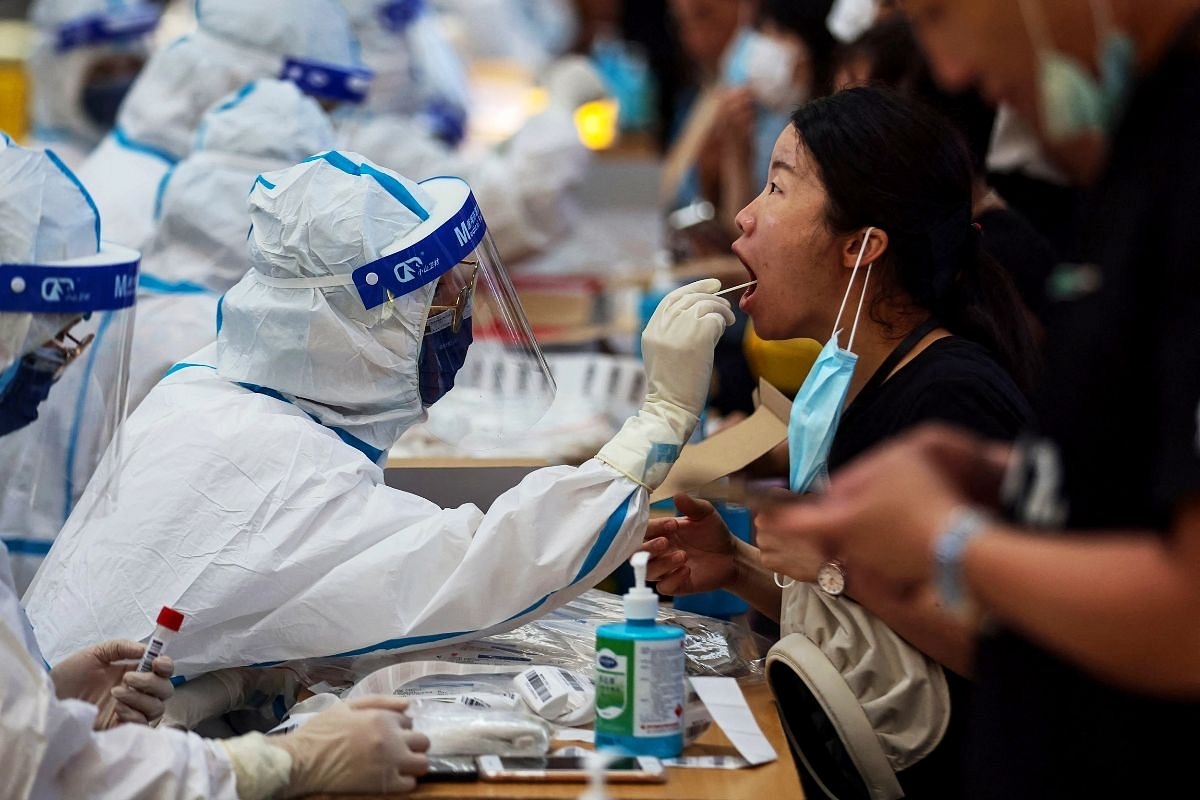News Brief
Wuhan Tests All The Residents Within A Week, As Delta Covid Variant Threatens China's Defence
- China has confined residents of entire cities to their homes, cut domestic transportation links and conducted mass testing; it also enforced severe entrance and exit controls.

Covid-19 cases rising in China.
After a rise in Covid-19 cases in China, more than a year after the novel coronavirus first emerged in Wuhan, Chinese authorities said on 8 August that they had finished citywide testing of more than 11 million people for the disease.
According to reports, top Wuhan official Li Tao said at a press conference that the test, which started on 3 August, provide essentially comprehensive coverage of all people in the Wuhan city except for children under the age of six and students on summer leave. In the most recent round of mass testing, the city has registered 37 locally transmitted Covid-19 cases and discovered 41 local asymptomatic carriers by 7 August.
Last week, Wuhan city officials said seven locally transmitted diseases had been discovered among migrant workers in Wuhan, breaking a year-long streak of no domestic cases after an initial outbreak was quelled in early 2020 with a strict lockdown. As reported, for the testing drive, authorities said they rapidly mobilised more than 28,000 health professionals at roughly 2,800 locations.
After the SARS-CoV-2 first appeared in the city of Hubei province in late 2019, China reduced domestic cases to almost zero, allowing the economy to recover and life to return to the pre-outbreak situation. But this fast-spreading Delta variant—which is found in more than 100 countries around the world—has reached dozens of Chinese cities after infections among airport cleaners in Nanjing began a chain of cases that have been recorded across the country, putting that record in peril.
As the country battles the outbreak, China has confined residents of entire cities to their homes, cut domestic transportation links and conducted mass testing. As part of its measures to manage the mounting instances, Beijing has also tightened abroad travel restrictions for its people. In "non-essential and non-emergency" circumstances, last week, China's immigration office said it would suspend issuing standard passports and other leave documents.
Meanwhile, seeing the spread of the virus in the country and cracks in the country's 'Zero Covid' model, Beijing had enforced severe entrance and exit controls on 8 August. Due to the fast spread of the Delta variant, Chinese officials have admitted that containing this outbreak will be far more difficult than containing the others.
While the number of cases in China is still modest in comparison to the United States and elsewhere, these new outbreaks—which are occurring in locations such as Nanjing, Wuhan, Yangzhou and Zhangjiajie—have highlighted the shortcomings of the country's zero-tolerance approach to the Covid-19. This model includes testing millions of people (sometimes more than once), lockdowns and disconnecting transport links in some areas.
Even though experts like Chen Zhengming, an epidemiology professor at the University of Oxford, believes that "China will have to pivot from its containment strategy, sooner or later -- you can stay Covid Zero for a while, but you can't stay Covid Zero forever, because the virus swoops in before you know it," authorities haven't yet thought about any alternatives.
According to some experts, this policy is also costly for economic growth, leading China to be isolated from other parts of the world.
However, the authorities cannot overlook the threat of further major outbreaks and have to ensure that the situation remains under control throughout 2022—when China will host Winter Olympics—because any unprecedented situation may hamper the event and put several people at risk.
Introducing ElectionsHQ + 50 Ground Reports Project
The 2024 elections might seem easy to guess, but there are some important questions that shouldn't be missed.
Do freebies still sway voters? Do people prioritise infrastructure when voting? How will Punjab vote?
The answers to these questions provide great insights into where we, as a country, are headed in the years to come.
Swarajya is starting a project with an aim to do 50 solid ground stories and a smart commentary service on WhatsApp, a one-of-a-kind. We'd love your support during this election season.
Click below to contribute.
Latest